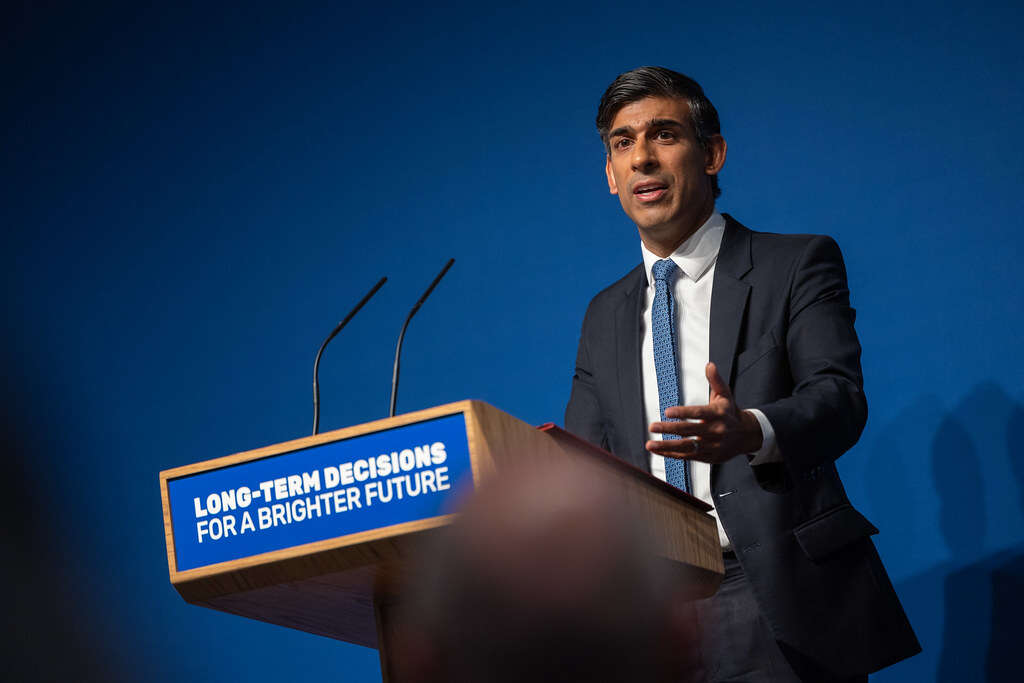
Governments including the UK, US and China have agreed to work together to establish a shared understanding of the opportunities and risks posed by frontier AI. The agreement, dubbed the Bletchley Declaration, was signed on the first day of the UK’s AI safety summit at Bletchley Park.

The summit opened this morning, and shortly afterwards it was announced that the Bletchley Declaration had been penned by 28 of the governments in attendance. Talks will continue today between political leaders, AI labs like OpenAI and Google Deepmind, and experts from academia and civil society. The summit aims to deepen understanding of risks posed by the next generation of AI systems, so-called frontier AI, and to improve the safety of such systems.
What’s in the Bletchley Declaration?
Signed by 28 countries from around the world, the Bletchley Declaration states “There is an urgent need to understand and collectively manage potential risks through a new joint global effort to ensure AI is developed and deployed in a safe, responsible way for the benefit of the global community,” according to a statement from the government’s Department of Science, Innovation and Technology.
Alongside the UK, US and China, countries endorsing the declaration also include Brazil, France, India, Ireland, Japan, Kenya, the Kingdom of Saudi Arabia, Nigeria and the UAE.
It sets out that there is “potential for serious, even catastrophic, harm, either deliberate or unintentional, stemming from the most significant capabilities of these AI models.” Countries also noted the risks beyond frontier AI, including bias and privacy.
Recognising the need to deepen the understanding of risks and capabilities that are not fully understood, attendees have also agreed to work together to support a network of scientific research on frontier AI safety. Last week it was announced the UK will launch the world’s first AI safety institute, which the government says will complement the work on AI safety being carried out by international bodies such as the G7, OECD, Council of Europe, United Nations and the Global Partnership on AI.
Following the Bletchley Park event, a mini virtual summit on AI will be held by South Korea sometime in the next six months. France will then host the next in-person summit in a year’s time.
Prime Minister Rishi Sunak said: “This is a landmark achievement that sees the world’s greatest AI powers agree on the urgency behind understanding the risks of AI – helping ensure the long-term future of our children and grandchildren.
“Under the UK’s leadership, more than 25 countries at the AI Safety Summit have stated a shared responsibility to address AI risks and take forward vital international collaboration on frontier AI safety and research.
Sunak added the UK is “leading the world at the forefront of this new technological frontier” by “kickstarting this conversation, which will see us work together to make AI safe and realise all its benefits for generations to come”.
Will the Bletchley Declaration have an impact?
What the practical implications of the declaration will be are unclear, given that the countries involved are taking very different approaches to policing AI.
While the UK and US both favour a hands-off, pro-innovation approach, with minimal legislation to guide developers, the EU has developed an AI act, an overarching piece of legislation for member states that will limit what can and cannot be done with advanced artificial intelligence. As reported by Tech Monitor, Japan also appears to be favouring this more prescriptive approach.
Elsewhere, the ongoing tensions between China and the US, and China’s long history of technological and industrial espionage, mean deep cooperation between Washington and Beijing on AI safety is unlikely. Export controls imposed by the US government have heavily restricted the supply of key components used in AI systems, such as GPUs manufactured by Nvidia that are deployed to train advanced AI models.
Sunak hopes to position the UK as a leading voice among these competing interests. As well as politicians and leading figures from AI labs, Tesla CEO Elon Musk is among those attending the summit and will take part in an interview with the prime minister, broadcast on Musk’s social media network X, tomorrow. Earlier this year Musk was one of the signatories of an open letter calling for a pause on the development of frontier AI while the risks of the technology are explored in more detail.






